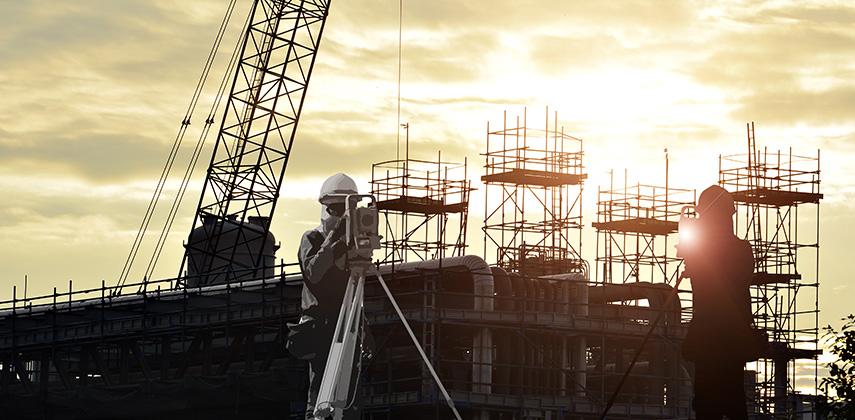As an effective means for promoting economic growth, the Government of Hong Kong Special Administrative Region (HKSAR) has been increasing its infrastructure investment over the past few years. As a result, some of the approved mega infrastructure projects have already had their details published, tenders released or contracts awarded, which have significantly contributed to the recent blooming of local construction activities.
In the 2016-17 Budget, the Government of HKSAR projected that the public expenditure on capital works would reach HK$79 billion for the fiscal year ending in March 2017. For the past few years, the government investments in public works, land development, transport network and other large-scale infrastructure projects have exceeded HK$70 billion annually. The capital works expenditure is expected to remain at a similar level in the coming few years. In addition to the Ten Mega Infrastructure Projects, Hong Kong’s Three-Runway System (3RS) Project with an estimated budget of HK$141.5 billion has been started since August 2016.
From the perspective of the Hong Kong 2030+ development strategy, the Secretary for Development stated that with the completion of several major regional transport infrastructure developments in the coming few years, Hong Kong’s geographical connection and economic integration with the fast growing Pearl River Delta region and beyond shall be greatly enhanced, giving rise to both opportunities and challenges. Obviously, there is a pressing demand for developable land for housing development as well as to support economic activities and to build community facilities. He has also emphasized that Hong Kong needs to respond strategically and swiftly to meet these challenges and to tap into new opportunities. Undoubtedly, the construction industry will continue to play a vital role in supporting the development of Hong Kong.
To accommodate regional urbanisation development, many Asian countries are upgrading their main infrastructure including housing, transport network and port facilities and have already been developing many commercial, retail and residential projects. This has provided plenty of opportunities for the Hong Kong engineering firms and construction companies. Similarly, rapid urbanisation has also been generating tremendous demands for housing, road networks and other public infrastructure works and is a major driving force behind the China’s infrastructure development for many years.
In March 2015, the China’s National Development and Reform Commission promulgated “The Vision and Actions on Jointly Building the Silk Road Economic Belt and the 21st Century Maritime Silk Road” plan, outlining the framework of the Belt and Road Initiative (BRI), as well as the co-operation priorities and mechanisms. It is estimated that at least US$1.2 trillion would be invested into the infrastructure projects along the BRI routes, with a large portion of the funding expected for the construction of ports, railways, and roads. In responding to this Initiative, the Chief Executive proposed in the 2016 Policy Address setting up a Belt and Road Steering Committee to formulate strategies and policies for Hong Kong's participation in the Initiative together with the formation of a Belt and Road Office to take forward the related studies and co-ordination work.
Hong Kong is renowned for its excellent professional services in building and construction. While the transport networks and infrastructure systems being the first stage in the development of BRI, Hong Kong professionals in the engineering consultancy, construction, project management and related fields are expected to gain tremendous benefits from various opportunities ahead.
Students and young engineers are encouraged to grasp these opportunities for the years to come. They should equip themselves with technical knowledge as well as other skills and experience. Success in this multidisciplinary civil engineering field demands not only sound engineering design knowledge, but also solid skills and experience in environmental protection, quality control, management, finance, law, procurement and communication. In particular, good communication skills and leadership in a multi-cultural environment would be playing a vital role in this Initiative.
The Hong Kong Institution of Engineers (HKIE) has always been devoted significant resources to the nurturing and development of engineering leaders. In line with this objective, the Civil Division of HKIE has been launching a wide spectrum of seminars, site visits, workshops and experience sharing sessions for promoting and enhancing a high standard in the civil engineering profession.
Through these institutional events, young engineers could gain leadership training and communication skills as they facilitate, coordinate and organize relevant activities with their fellow colleagues and experienced engineers. They could also build up professionalism and core competence through these activities. With the tremendous opportunities ahead, it is believed that the career in construction industry is promising and rewarding for a well-prepared engineer with necessary knowledge, skills and experience.



